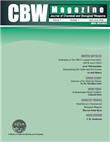India
India has to be wary of Chinese Intrusions
China's demand for the removal of two Indian Army bunkers from its outpost at Batang La near the India-Bhutan-China tri-junction in August 2007 can be seen from two angles. Firstly, the entire episode can be dismissed as a case of highhandedness of a few Chinese border officials who entered Indian territory inadvertently and came face to face with these Indian bunkers. Oblivious of where their actual position on the ground is, these officials then raised objections about the bunkers.
- Pushpita Das
- October 19, 2007
A Pattern of Terrorist Strikes on Places of Worship
A new trend in terrorism has emerged in India involving the targeting of places of worship. Fifteen such incidents have occurred across the country between 2000 and 2007, resulting in the deaths of about 130 people and injury to several hundreds more. The October 11, 2007 terrorist bombing of the Sufi shrine of Khwaja Moinuddin Chishti at Ajmer in Rajasthan is the latest incident in this pattern. Initial reports suggested that at least two worshippers died in the attack while some 20 others were wounded.
- T. Khurshchev Singh , M. Amarjeet Singh
- October 15, 2007
Hyderabad Woes: Mecca Masjid, Lumbini Park…
Hyderabad has been reeling under deadly terror strikes. Three months after the serial blasts at Mecca Masjid on May 18, 2007, another pair of coordinated attacks rocked the city on August 25. Repeated attacks by outfits with support from foreign covert agencies have made Hyderabad an epicentre of terrorist operations in India. The twin blasts on August 25 and the subsequent recovery of unexploded bombs from different places pointed to a security lapse as well as a delayed government response to demands for beefing up the city's protective measures in the aftermath of the May explosions.
- T. Khurshchev Singh
- September 13, 2007
Nuclear Proliferation Challenges and India’s Response
India is uniquely placed in the international security and political environment as it neither falls within the NPT 'definition' of 'nuclear weapon states' nor is it a country that can be ignored in any international arrangement without taking into account the reality of its being a state with nuclear weapons capability. At a time when proliferation challenges are assuming disturbing levels, this article seeks to examine the policy options available for India to strengthen the international nuclear non-proliferation regime.
- Rajesh Kumar Mishra
- September 2007
The Need to Enhance Diplomatic Impetus in India’s Global Energy Strategy
Overseas energy being a key factor in India's economic development, it is necessary to think whether we need to treat the country's global quest for energy resources as a purely commercial interaction with the energy market or as a larger strategy involving diplomatic activism. While not ignoring the importance of nuclear or alternative sources in the country's energy landscape, we need to understand that petroleum sources would continue to be indispensable for India's fuel economy in the foreseeable future.
- J Nandakumar
- August 16, 2007
NBC threats and India’s Preparedness
The bombing of Hiroshima and Nagasaki had come as a major surprise to the international community primarily because the massive destructive capacity of the atom was only fictional before then.… Continue reading NBC threats and India’s Preparedness
- Soumya Tiwari
- July-December 2012
Indian Defence Acquisition: Time for Change
The latest Comptroller and Auditor General (C&AG) Performance Report on Defence Services (No. 4 of 2007) has once again exposed the problems involved in Indian defence acquisition. The report has been critical virtually of all the processes of the acquisition cycle, from planning to the formulation of Qualitative Requirements (QRs), vendor selection, conduct of trial and evaluations and processes of induction.
- Laxman Kumar Behera
- August 03, 2007
The Imperative of Finalising the Nuclear Deal by 2008
Even though the Indo-US nuclear deal has passed one more hurdle with the completion of the 123 Agreement to the satisfaction of both governments, the remaining hurdles include the signing of agreements with the International Atomic Energy Agency (IAEA) and the Nuclear Suppliers Group (NSG) before the Agreement can go back to the US Congress for its final imprimatur.
- Cherian Samuel
- August 03, 2007







